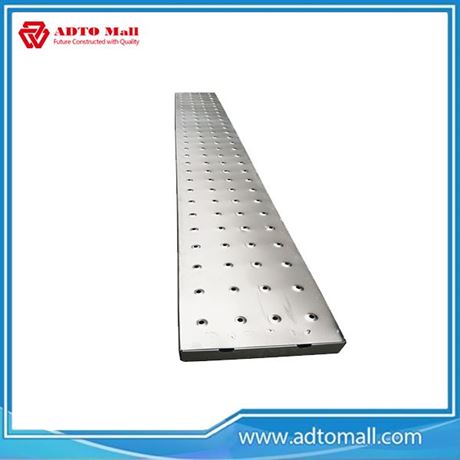
ADTO News
Scaffolding Planks: The Essential Platform for Safety and Productivity on Site
In construction and maintenance, a solid foundation is not just about the structure being built; it's also about the platforms workers stand on. While scaffolding frames provide the necessary support, it's the scaffolding planks that truly create the safe, stable, and accessible working surface for every job. Often overlooked, these crucial components are fundamental to both worker safety and overall project efficiency. Understanding the different types and applications of scaffolding planks is key to optimizing your construction operations.
What Are Scaffolding Planks?
Scaffolding planks, also known as scaffold boards or decks, are the horizontal platforms laid across scaffolding frames or ledgers. They are designed to provide a secure and stable surface for workers to stand, move, and store tools and materials. Made from various durable materials, these planks must meet stringent safety standards to ensure they can withstand the demands of a construction environment.

Key characteristics include:
Load-Bearing Capacity: Engineered to safely support workers, equipment, and materials.
Slip Resistance: Surfaces are often designed to minimize slips and falls.
Durability: Built to endure harsh weather, heavy use, and resist wear and tear.
Standardized Sizes: Available in common lengths and widths to fit various scaffolding systems.
Why Are Scaffolding Planks Crucial?
Scaffolding planks are more than just boards; they are vital for creating a productive and secure work environment:
Ensuring Worker Safety: The primary role of planks is to provide a non-slip, stable, and strong platform, significantly reducing the risk of falls and accidents on elevated workspaces.
Enhanced Productivity: A spacious and secure platform allows workers to move freely, access materials easily, and perform tasks more efficiently without constant concern for their footing.
Material Support: They bear the weight of tools, equipment, and building materials, keeping them organized and readily accessible to workers.
Versatility: Available in different materials and sizes, allowing for adaptation to various project requirements and environmental conditions.
Compliance with Regulations: Using appropriate, certified scaffolding planks is a mandatory requirement for meeting safety regulations and standards in the construction industry.
Types of Scaffolding Planks
Scaffolding planks come in several common types, each with specific advantages:
Wood Planks (Timber): Traditionally popular, these are often made from high-grade lumber like spruce, pine, or fir. They are lightweight, cost-effective, and easy to handle. However, they require careful inspection for rot, cracks, or damage.
Steel Planks: Known for their exceptional strength, durability, and resistance to fire and harsh weather. Steel planks offer superior load-bearing capacity and a longer lifespan, making them ideal for heavy-duty applications. Their non-slip surfaces are often enhanced with perforations or ribbing.
Aluminum Planks: Lightweight and highly resistant to corrosion, aluminum planks are easy to transport and install. They are a good choice for projects where weight is a concern or in environments where moisture is prevalent.
Composite Planks: Offering excellent strength-to-weight ratios, these planks are non-conductive, making them suitable for electrical work. They are also resistant to chemicals and rot.
Diverse Applications of Scaffolding Planks
Scaffolding planks are universally applied across all sectors where scaffolding is used:
Building Construction: Forming the essential walking surfaces for bricklaying, roofing, painting, cladding installation, and general facade work.
Renovation and Restoration: Providing safe access points for detailed work on historical buildings or modernizing existing structures.
Industrial Maintenance: Crucial for maintenance, inspection, and repair work in factories, power plants, and refineries where elevated access is needed.
Shipbuilding and Marine Applications: Used in docks and shipyards, often favoring aluminum or composite planks due to their corrosion resistance.
Event Staging and Temporary Structures: Essential for creating temporary walkways, viewing platforms, and stage flooring for concerts, festivals, and public gatherings.
Choose the Right Plank, Build with Confidence
The integrity of your scaffolding system is only as strong as its weakest component. Investing in high-quality, certified scaffolding planks is not just a regulatory requirement; it's an investment in the safety of your workforce and the efficiency of your project. Selecting the right type of plank for your specific application ensures stability, durability, and peace of mind.
ADTO Group offers a comprehensive selection of premium scaffolding planks – including wood, steel, and aluminum options – designed to meet the highest safety standards and the demands of any construction project. Contact us today to secure the best foundation for your team!


 Live Chat
Live Chat
